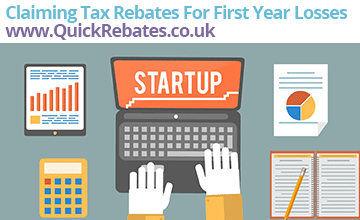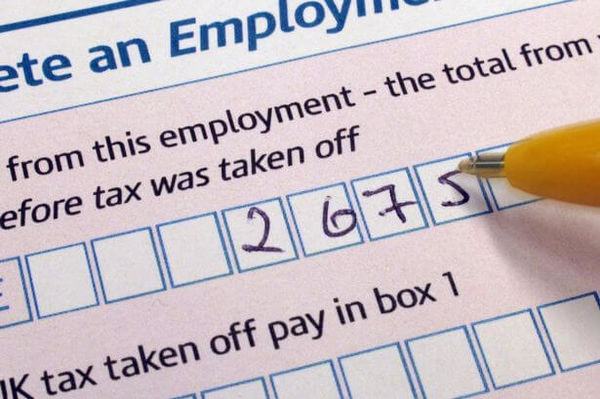What Forms do I Need to Claim a Tax Rebate?
This really depends on what your circumstances are, what Tax you have paid, and what reliefs you are claiming. For example claiming Tax relief on travelling to temporary workplaces would be different to claiming HMRC Tax rebates on overpaid CIS Tax.
We have broken down below the forms into appropriate sections to help you get started. Just like HMRC advise, we would recommend that you seek assistance if you are unsure on how to complete any of the Tax forms. Penalties can be issued for incomplete, inaccurate, or even late returns.
QuickRebates Tax Refund Forms
If you are looking for QuickRebates to manage your HMRC Tax rebate claim on your behalf, the following documents would come in useful:
- Tax Rebate Form & Checklist
- This covers the majority of information we need to get started on your HMRC Tax refund claim. Although it may seem overwhelming at first, it’s rather easy to complete. Don’t worry if you can’t remember exact details, if there’s anything you’re unsure about, give us a call and we’d be happy to help.
- QuickRebates Terms & Conditions
- This covers the key terms of our engagement as agents for dealing and managing your Tax relief claim. Have peace of mind that our costs are on a no-win / no-fee basis, and we are completely upfront with regards to our charges.
HMRC regularly advise that Tax payers seek professional advice when dealing with their Tax. Unless you have prior experience and knowledge with processing HMRC Tax rebates, it is easy to slip up. The rules can be complicated and there are so many reliefs to claim, you might end up overpaying Tax.
General HMRC Tax Forms
There are lots of forms relevant to general Tax forms, but there are three in particular that get used more often that others:
- Agent Authorisation – 64-8
- This is a HMRC Tax form that authorises an agent (such as accountant or Tax advisor) to act on your behalf. The 64/8 form allows the named Tax agent to contact HMRC to discuss and request relevant information. The named agent in the 64-8 is also authorised to submit Tax rebate claims on your behalf.
- Registering as Self-Employed – CWF1
- This particular HMRC Tax document is used to notify the Tax office when you have started up in business. The rules used to be that you had to notify them within three months. They have since relaxed this and now you are allowed up to 5th October in the second Tax year to disclose your new business. Like anything else, we would advise you to do this as early as possible.
- Reducing Payments on Account – SA303
- When you are self-employed and your annual Tax liability is more than £1,000, HMRC require you to pay two half yearly instalments towards your next years Tax liability. These instalments are estimated and are each exactly 50% of your previous years liability as they assume your income will be the same. If it is known that the next years income will be less, you can apply to reduce the payments on account, using HMRC Tax form SA303.
Construction Tax Rebate Forms
If you are self-employed in the construction industry, there are additional forms you require to the general self-assessment Tax forms detailed further in this article. These construction Tax forms are essential to paying and reclaiming the correct amount of Tax.
- Individual Construction Registration – CIS301
- Although this can be done online and also over the phone, the HMRC Tax form CIS301 allows you to register as a subcontractor for payment with 20% deduction. If you do not complete this form, it is most likely that your contractor will deduct the higher rate of 30%. This 20% deduction goes to your Income Tax pot, and in most circumstances you can reclaim a lot of this back.
- Repayment Claim Form – CIS40
- Unfortunately, this cannot be downloaded but can be prepared online at the HMRC website. They will require you to have business accounts prepared. Unless you have these at hand, you will have difficulty in completing your online HMRC Tax rebate claim.
Preparing HMRC Tax rebate claims can be tedious, but penalties can be applied for late and inaccurate returns. Don’t let yourself be penalised for inaccurate returns and let QuickRebates oversee your HMRC Tax rebate claim
Self-Assessment HMRC Tax Form
The self-assessment side of Tax return can also include many supplementary forms, for example if you are self-employed, have rental income, have foreign income or employment income. We haven’t included all HMRC Tax refund forms, but we have detailed the more commonly used self-assessment forms:
- Self-Assessment Tax Return – SA100
- If completed by paper, this is required by 31st October following the relevant Tax year. The SA100 covers basic income and reliefs
- Employment Pages – SA102
- Additional pages required to declare income and benefits from employment
- Note, you could have more than one employment in the year
- Self-Employed Pages – SA103S / SA103F
- There are two forms available for declaring self-employed income. The first, SA103S (Self Assessment Short) is used when your turnover is less than the VAT threshold, currently £83,000. The SA103S is quite minimal in detail. The second form of self employed pages is the SA103F for businesses that have a turnover exceeding the VAT threshold and require a higher level of income and expenditure declaration.
- Income from Property – SA105
- Rental income and expenditure, from buy to let investments or other commercial property portfolios should be declared on HMRC Tax form SA105. This should not include property sales or disposals which must be declared as capital gains.
HMRC VAT Forms
HMRC require most regular VAT (Value Added Tax) forms to be completed online. This would include the statutory quarterly VAT return where you would declare your business inputs, outputs, and the VAT payable or repayable to you.
Other HMRC VAT forms can be completed on paper, but again, the Tax office recommend these to be done online to save administration. The following documents are the more common VAT forms completed on paper:
- VAT Registration – VAT1
- Self-explanatory, this is the HMRC form you would use when you want to register for VAT. There are a number of reasons why a VAT registration would be necessary. It might be compulsory due to your business reaching or expecting to reach the threshold, or perhaps it makes commercial sense for you to be VAT registered. The reasons for VAT application would be required on the application.
- VAT De-registration – VAT7
- Of course when there’s a registration process, there is also a de-registration process, and the form VAT7 is used for these circumstances. De-registering for VAT is not necessarily straight forward as their could be Taxes to pay if there are certain goods or assets left in hand. Advice should be sought in such circumstances
Can You Help With my HMRC Tax Rebate Form?
Absolutely, and just like HMRC, they recommend you seek professional advice when completing important documents such as Tax refund forms. HMRC expect all Tax return forms to be completely accurately and on time. Whether you have claimed the allowances you are entitled to, they rarely bring this to your attention. Outsourcing the management of your HMRC Tax rebate form has the following benefits:
- Hassle free. We speak to HMRC on your behalf throughout the whole process
- All reliefs and allowances will be claimed in full when possible
- Tax advice for the future will be offered
- Peace of mind knowing that your online Tax rebate form will be submitted accurately and within the appropriate time frames
- Comfort understanding that QuickRebates will do everything possible to maximise the claim you are entitled to.
Save yourself the headaches of completing your HMRC Tax rebate forms yourself and let QuickRebates manage this process on your behalf. Contact us today for a no-obligation quote.

17 Actionable Tips for New Business Startups
17 Top Tips for New Businesses (Physical and Digital) Starting any business be it physical or digital, can be extremely[...]

Tax Relief for Opening Year Losses
Opening Year Loss Relief When starting a new business, it is incredibly common for Tax losses to arise in the[...]

Tax Refunds for Musicians
Musicians – It’s Time to Claim Back Your Tax! As a musician starting up in business, you could be entitled[...]







